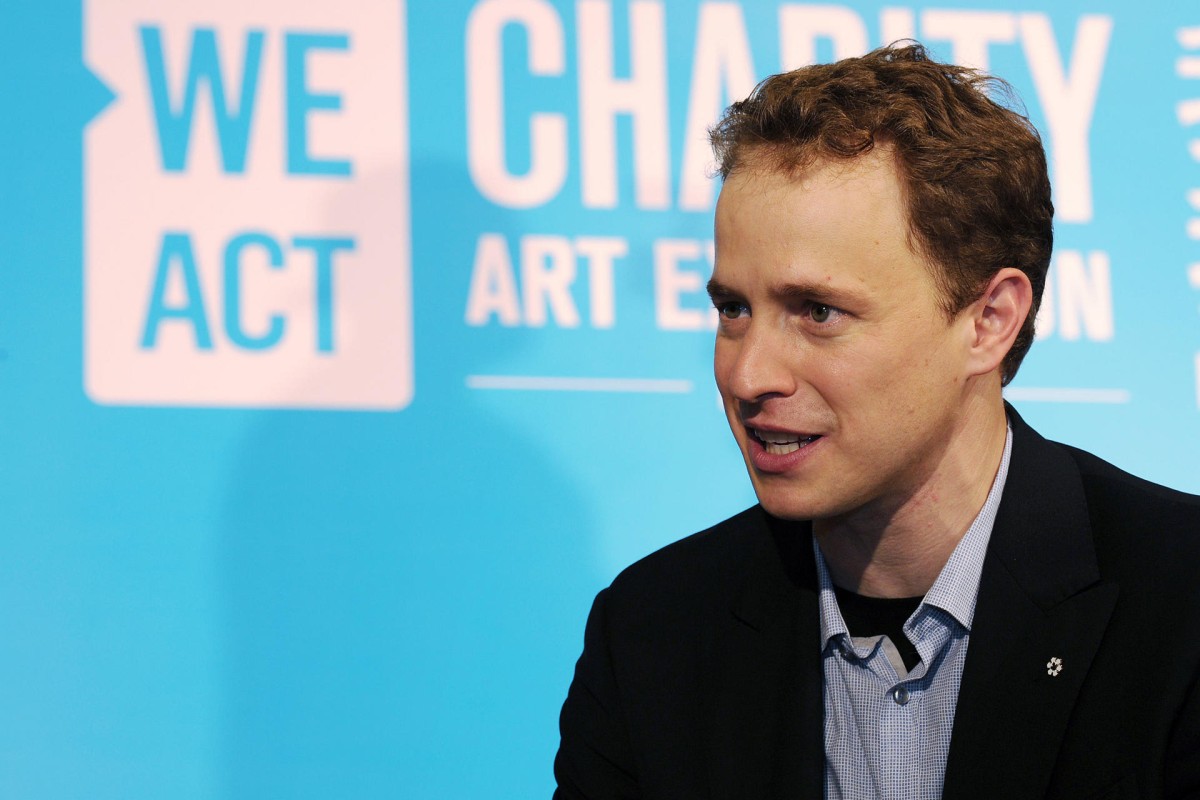
Free the Children, a charity based on the idea of "children helping children", came to Hong Kong for the first time this month.
It all started in 1995, when 12-year-old Craig Kielburger read a story in his local newspaper in Canada about Iqbal Masih. Iqbal was a Pakistani boy , also aged 12, who was killed after campaigning against child labour. Iqbal had escaped after being forced to work.
It was the first time the Canadian boy had ever heard of child labour. To help fight against it, he and some classmates founded Free the Children. Craig's elder brother, Marc, joined the journey soon after.
"I didn't know where Pakistan was on a world map, but I knew we needed to do something," Marc Kielburger recalls his younger brother saying.
Kielburger, now 37, visited Hong Kong for the opening of a charity art exhibition, co-hosted by Free the Children and its sister organisation, Me to We.
Celebrities from the mainland, Hong Kong and Macau contributed personal art, such as calligraphy and fashion designs, for the exhibition. They will be auctioned off in the future to raise money for the charity.
The exhibition encourages young people to discover what they care about, and then make a difference.
The charity also hopes to engage more with local students in Hong Kong, making them aware of the importance of protecting the environment, and how to volunteer.
Free the Children not only works towards freeing children from labour and exploitation, but also tries to "free young people around the world from the idea that they are too young to make a change", Kielburger says. "They do care about changing the world; they just don't know what to do or how to do it."
Free the Children fills that gap, helping to provide the tools youngsters need to make a difference.
The charity started with a group of youngsters getting together to write letters, make phone calls, and hold garage sales, all in the belief that education was the answer to ending child labour.
Their first goal was to build a school in Latin America to give more children the chance to have an education.
"We built one school, and then five, and then 10, and then we had this crazy goal of building 100 schools," Kielburger says.
Many adults didn't believe it was possible. Some even said the children's focus should be their own education.
Yet today the organisation has built more than 650 schools worldwide, providing education to more than 55,000 children in Africa, Asia and Latin America.
But school is only the first step. As the organisation gets more involved in local communities, the more problems they discover, such as education for girls.
"The No1 reason girls can't go to school in sub-Saharan Africa is that they have to collect water for their villages," Kielburger says. So, the charity decided it also needed to provide clean water and health care.
"Kids are showing up [to school], but they are hungry, so we need agricultural programmes; mothers can't afford to send all the kids to school so we need economic programmes. It all becomes a package," says Kielburger.
"The greatest gift one could give is giving people the dignity not to need your help any more."
